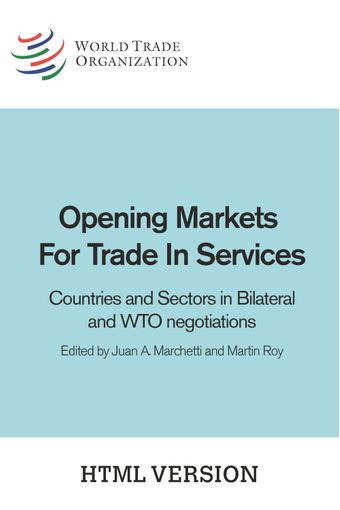GATS plus or minus? Services commitments in comparative contexts for Colombia and Uruguay

- Authors: Juan A. Marchetti and Martin Roy
- Source: Opening Markets for International Trade in Services , pp 16-16
- Publication Date: January 2009
- DOI: https://doi.org/10.30875/96695b6f-en
- Language: English
The increasing proliferation of bilateral, regional, and multilateral trade agreements has put new twists and brought new questions to the fore in the old debate on the effects of these agreements (either separately or together) on the concerned economies, as well as on world trade as a whole. By July 2007 nearly 380 preferential trade agreements had been notified to the WTO, and it is estimated that over 400 PTAs will be in force by 2010. Earlier the chief concern had been whether regional or bilateral agreements were building blocks or stumbling blocks toward multilateralism; this became an issue, empirically for a while, centering on how the two types of agreements had to exist “side by side,” for better or for worse (Fisch, 2001). As one Colombian negotiator put it: “The WTO is not a place of liberalization, but consolidation”. The concern is now revisited in the context of a possible breakdown or slowing down of the multilateral order itself, and the increasing pressure on small economies to meet the demands of the great powers in bilateral free trade agreements in defecting from both regional and multilateral trade arrangements. This chapter attends to the latter set of concerns in speaking of the GATS+-type arrangements becoming de rigueur in bilateral agreements. In doing so, however, it also showcases trade as an increasingly complex set of arrangements between local, national, regional, and international dynamics.
-
From This Site
/content/books/9789287046673s011-c001dcterms_subject,pub_countryId-contentType:WorkingPaperSeries -contentType:Periodical -contentType:BookSeries -contentType:ReportSeries105


